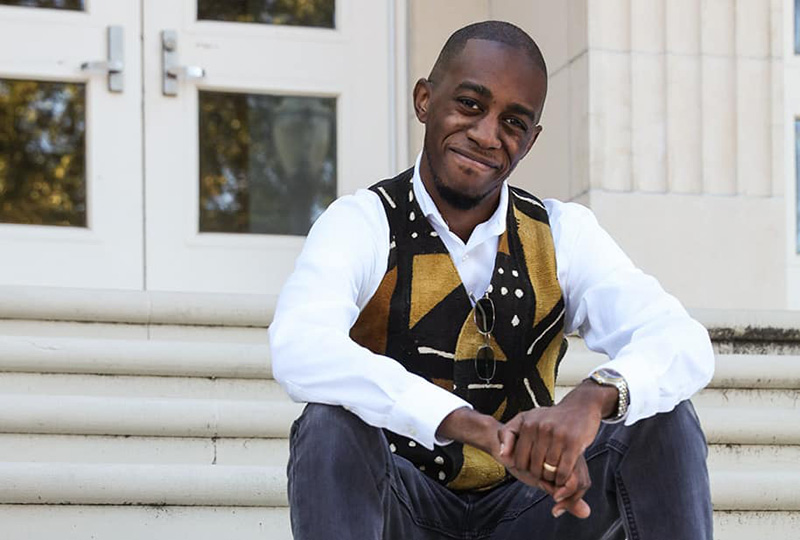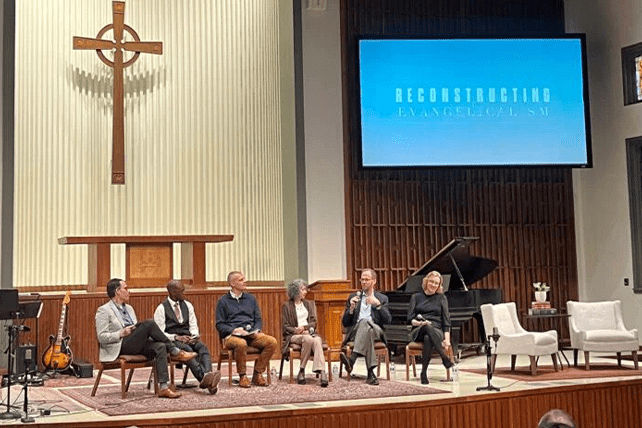“The work and energy that we would be investing in reclaiming that term could also be used in loving our neighbors,” he said. “Instead of needing to reclaim the term, just be gospel people. Be people who are going to invest in deep spiritual, economic and physical solidarity as the church. They can call you whatever they want. If you are living a life that is bearing witness to the kingdom of God, I don’t care what you call me.”

Malcolm Foley. Photo courtesy of Baylor University
Sweeney countered that he was not willing to give up on evangelicalism yet. A self-described “evangelical Lutheran” and a member of a group called Lutheran Congregations in Mission for Christ, Sweeney summoned a picture of the cross-denominational movement that evangelicalism aspires to be and that he said he hoped to remain part of.
Still, if evangelicalism is to be reconstructed, various panelists said, it has to be done with humility. Some evangelicals, several panelists said, see their movement as the last hope for Christianity in the world — an idea the panelists rejected.
In an interview before her address, Du Mez said that many of the pastors at the conference want to be faithful to their beliefs and lead their congregations well — but outside cultural forces make that difficult.
“It is a hard time to be a pastor,” she said.

Kristin Kobes Du Mez. Photo © Deborah K. Hoag
Du Mez’s view of evangelicalism as a consumer culture is based on observation of churches that grow by giving people what they want, which of late has included hot-button conservative politics and culture-war rhetoric. Leaders who try to address racism, sexism or other social justice issues get pushback from inside the church and from social media.
She pointed to evangelicals like Beth Moore, a popular Bible teacher who became unwelcome in the Southern Baptist Convention, the nation’s largest evangelical group, for calling out sexism and abuse in the nation’s largest Protestant denomination.
“If you step out of line, you will be punished,” said Du Mez.
Du Mez said many pastors are good-hearted and have a clear grasp of theology. But they often lack an understanding of the broader cultural factors affecting the country and their churches.
“One of my favorite virtues is the virtue of wisdom or prudence — understanding of how the world works,” she said. “So that when you are pursuing your goals, you are doing so in a way that will bear the fruit. Because if you don’t understand properly how the world works, yeah, then good luck trying to live faithfully trying to bring positive change.”
Lawrence said the conference, which continues through Wednesday and is being streamed online, is meant to spark respectful conversations about Christianity, its challenges and the possibility for change.
“It’s not good for any of us if we are not having these conversations,” he said.
This article originally appeared here.

